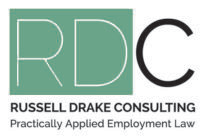As the current Covid wave begins to decline, and Government’s pandemic related restrictions are eased, are we going to see a ‘business as usual’ approach adopted within New Zealand?
There is no doubt that the Covid Protection Protocols put in place by the Government have significantly changed the manner in which many employees now undertake their duties and responsibilities. The increase in ‘working from home’ arrangements has been a necessity to enable some businesses to continue to operate, while for others it has become the ‘new norm’ of workplace practices.
As restrictions ease not everyone is excited about returning to the office with a recent report by global consulting firm – McKinsey & Company, confirming that many workers are quitting their jobs rather than giving up the ability to work from home.
Employment Law can operate on the principles of both written terms and conditions and established (unwritten) customs and practices, with this now creating an interesting dilemma for employers who may now wish to reinstate that the primary ‘place of business’ is the office, while seeking to retain talented employees who have established themselves within the ‘home office’.
The answer to this dilemma is likely the need to seek to renegotiate the terms and conditions of employment whereby the employer retains the right to require an employee to work within the office, while also allowing working from home ‘on approval’.
As we know from previous restructure and reorganization experience – the ability to implement change successfully is significantly enhanced when there is consultation and agreement between the parties. Creating a ‘win-win’ situation will therefore be critical to the success of the ongoing employment relationship – and the retention and productivity of core talent within the business.
Not only will this require a re-wording of the ‘place of work’ provisions within the employment agreement, but also the establishment of a clear ‘working from home’ policy.
Secondary to any such change will be the establishment of the ‘cultural expectations’ of workers who may be operating across two approved office locations going forward – the term for this being “The Hybrid Workplace”.
Talent expert Bill Schaninger states that, with employees being accustomed to working from home, there has been a blurring of personal and professional lives where being required to return to the office may be seen as an opportunity missed to spend time with children or juggle home tasks. For some, the re-emergence of the daily commute to the office may be something that negatively impacts on the employee’s mindset and mental health. Schaninger states that employees are now asking the questions, “Do I really care about what I do for a living?” and are therefore making statements such as “my work has to be more than a job, it has to fit my life’s purpose”.
The success of re-engaging with staff will therefore need to be strongly linked to creating reasons for an employee to want to be in the office – creating ‘in-person’ events or new rituals that have more meaning for those that participate physically more than virtually.
Engaging employees in this dialogue will be important.
If you need assistance in re-creating the workplace environment in order to retain (and attract) key talent or need to ensure that you have the correct employment documentation (clauses and policies) in place to effectively manage the new Hybrid Workplace, please feel free to give us a call.
To view the full McKinsey article please see here

